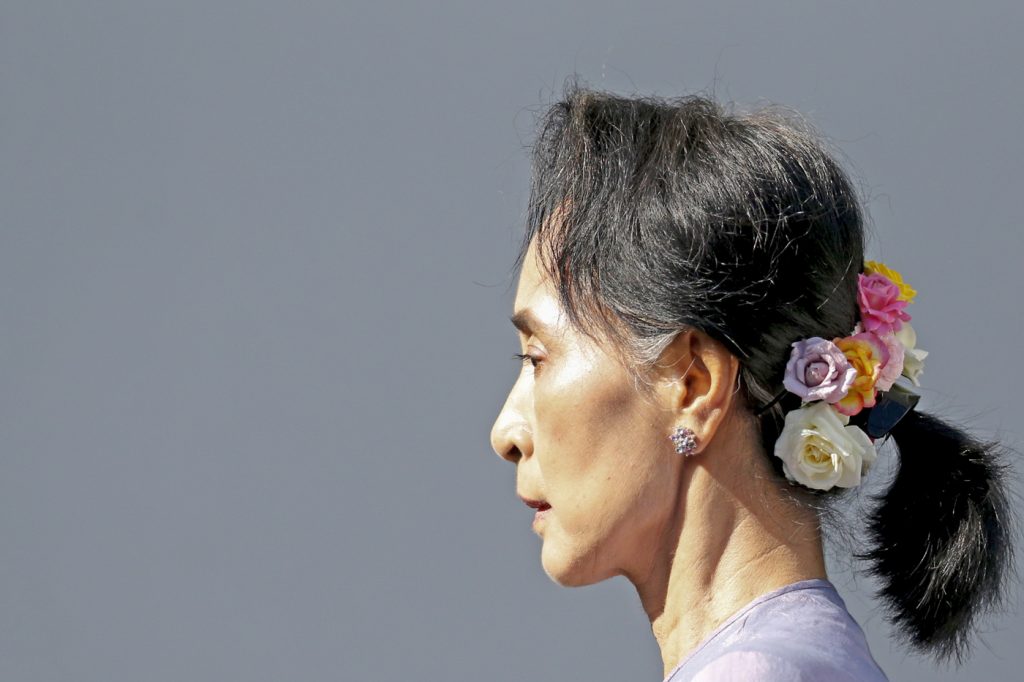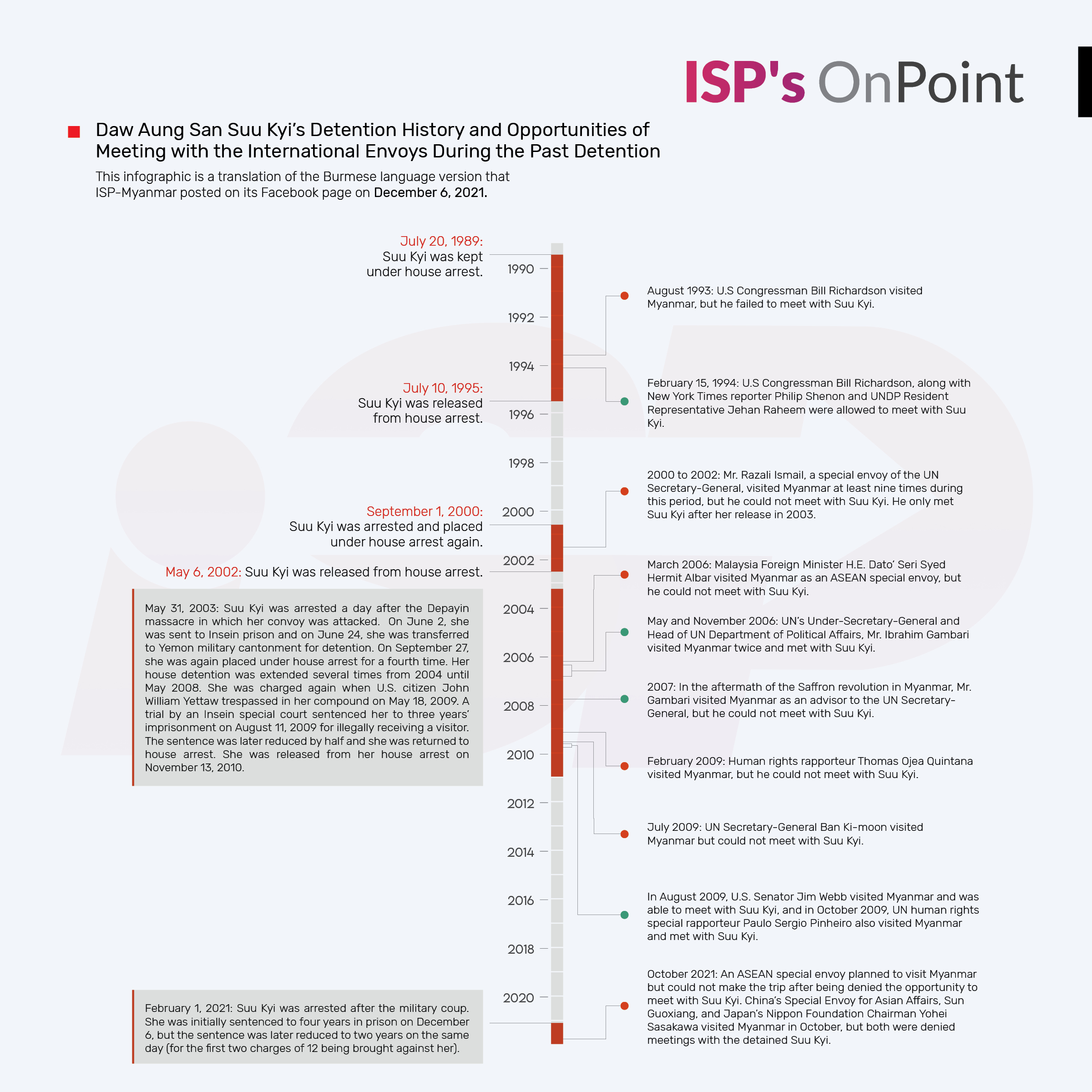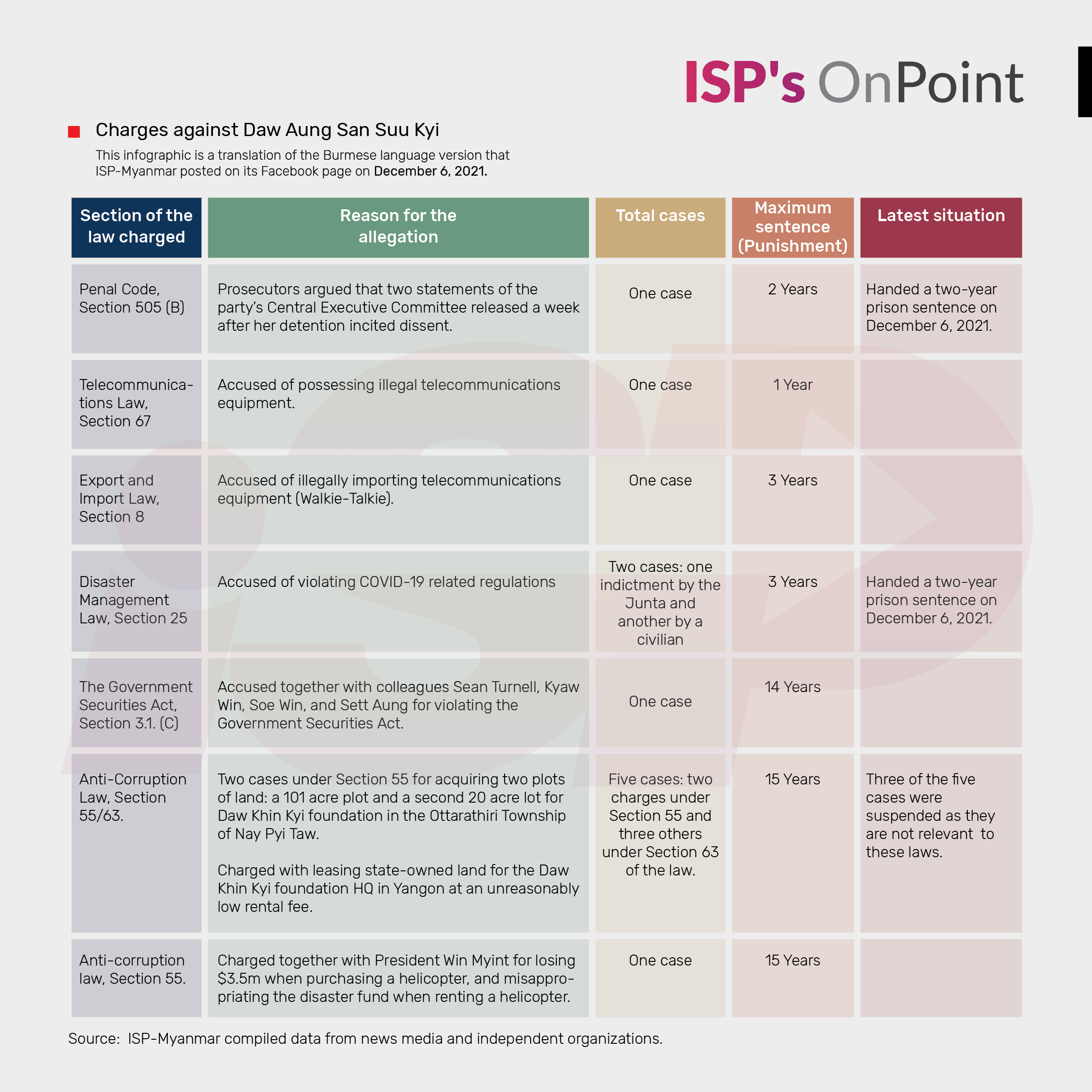OnPoint No. 1
(This article is a translation of the Burmese language version that ISP-Myanmar posted on its Facebook page on December 6, 2021.)

Events
A special court in Nay Pyi Taw today sentenced State Councilor Daw Aung San Suu Kyi to four years in prison. The sentence covers just two of a dozen charges brought against her by the military council. Today’s verdict marks the second time she has faced imprisonment since 1988, when she began a period of more than fifteen years under house arrest during the previous military rule. However, it is the first time for her to be indicted with a dozen of various cases. The State Administration Council later reported on the night of December 6 that the four-year sentences of Daw Aung San Suu Kyi and President Win Myint would be reduced to two years, and that they would serve the sentences at the current location where they are being detained.
Preliminary Analysis
Daw Aung San Suu Kyi has been a troublesome political issue for successive Myanmar military rulers, including Gen. Ne Win, Dr. Maung Maung, Sr. Gen. Than Shwe and U Thein Sein, and now the country’s latest junta leaders. The junta has attempted to solve this problem, either by means of oppression, imprisonment, or tolerating Daw Aung San Suu Kyi’s participation in politics within the constraints of the 2008 Constitution, but they have eventually found themselves in a lose-lose situation.
The critical problem for junta leaders is that Daw Aung San Suu Kyi enjoys profound popular support at home and wide recognition within the international community. Essentially, she enjoys a level of popular “legitimacy” that no other military rulers could ever claim since the military intervention in politics in 1958. If power holders and any aspirants to political power cannot resolve this legitimacy puzzle, they will always fall short of their political expectations in Myanmar. However, this does not mean that the legitimacy of Daw Aung San Suu Kyi has never experienced disputes and challenges. Her political legacy has experienced numerous ups and downs over the years. Daw Aung San Suu Kyi endured severe international criticism during the Rohingya crisis, and ethnic minority groups criticized her handling of ethnic affairs and the peace process in Myanmar.
It is also worth noting that some new political players since the military coup and activists in the “Spring revolution” have kept distance from Daw Aung San Suu Kyi’s political positions. Some activists have voiced their dissatisfaction with her during the recent trial, even while others have called for non-cooperation with the junta under the Civil Disobedience Movement (CDM).
Meanwhile, quite different from the situation in the 1990s and 2000s, many ASEAN countries and China acknowledge Daw Aung San Suu Kyi as a key leader for a peaceful and stable change in Myanmar. In fact, the ASEAN special envoy cancelled a planned visit to Myanmar because the junta denied his request to meet with her. The military council justified their refusal on the grounds that she was still going through the procedures of her judiciary trial. Now that the trial has ended and a sentence has been handed down, it remains to be seen if she will be allowed to meet foreign special envoys, diplomatic delegations, and her own party leaders in the country. If such meetings are allowed, her political message could still play a major role in shaping Myanmar’s unfolding political landscape.
Scenario Forecast
Fundamentally, the military’s inability to contest Daw Aung San Suu Kyi’s disproportionate political influence was a key reason for the military coup. The military failed to address this question, though she and the National League for Democracy (NLD) were severely constrained by 2008 Constitution and the carefully crafted military-led transition. Myanmar’s current junta leaders and future aspirants could once again face a similar challenge over the Daw Aung San Suu Kyi puzzle. Some political actors contend that Myanmar’s politics should go beyond personalized politics and personality cult, but it is hard to dismiss the fact that Daw Ang San Suu Kyi still plays a major role in politics and her outsized popular legitimacy will remain relevant for as long as she is alive. Oppression her, attempting to limit her influence, and even imprisonment will not negate her central role in Myanmar’s politics.


ISP’s OnPoint section aims to provide a concise preliminary analysis and scenario forecast on the current significant events and developments.

